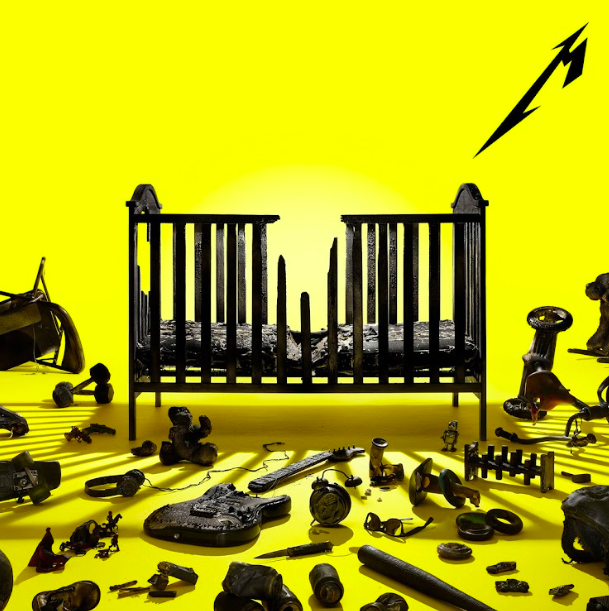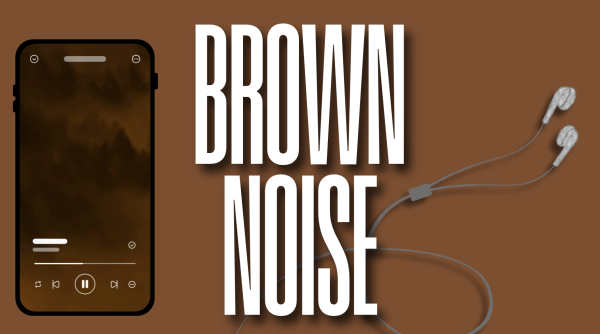Metallica’s Shine is Scattered on “72 Seasons”
40 years is a long time, even in the context of a music industry where acts come and go in the blink of an eye. Since entering the scene in their scrappy 1983 debut album, “Kill Em’All,” no musical act has understood this better than Metallica. From laying the foundation of thrash with their 1986 album, “Master of Puppets,” to catapulting to international superstardom in 1991 with their self-titled work, “Metallica,” (also known as the black album), the band has left no stone unturned in their career. Now, Metallica has returned with “72 Seasons,” an album that largely succeeds in concept, but occasionally trips over itself with inconsistencies that unfortunately prove that the appeal of modern Metallica is all in the eye of the beholder.
This philosophy has come to haunt the four horsemen since their explosive “Black Album,” which received universal acclaim from critics. This was when Metallica was branded as sellouts — not only were they doling out stadium stompers like “Enter Sandman” but love ballads like “Nothing Else Matters,” and radio hits like “Sad But True.” The “Black Album” became the unreasonably high bar to which the band became held for the rest of their career. Following 1991, the band went wayward, struggling to either recapture the magic of the black era, or return to their thrash roots that made them household names. With “72 Seasons,” Metallica manages to do a bit of both with varying degrees of success, as they lean on all they’ve learned as a band for the past 40 years, producing an album that seems more like a greatest hits collection than anything truly original.
Frontman James Hetfield spoke to the meaning of the album’s title as indicative of the first 18 years of life where one finds their true or false selves. This is definitely visible across the 12-track album, as all of the tracks draw substantial inspiration from the band’s youth and adulthood. “72 Seasons” is very much the band’s attempt to take listeners through a time machine from the early days where they earned the hard-partying moniker of “Alcoholica,” to their grungy hard-rock turbulent adulthood as a band in the late ’90s to early 2000s.
Metallica’s youth shines brightest in tracks like “Lux Aeterna,” “Room of Mirrors” and “Shadows Follow.” The first opens with lead guitarist Kirk Hammet shredding strings with such rapid fire precision, listeners could easily confuse it for “Hit the Lights” from 1983. Between Hammet’s solo and drummer Lars Ulrich’s thunderous thrashing, it’s clear Metallica never truly lost sight of what established them as household names. “Room of Mirrors” is a dead ringer for the band’s 1984 title track, “Ride the Lightning,” as James Hetfield belts with near identical vocal cadence, “In a mirrored room/All alone I stand/Strip away the phantom fame/Exposing all sides to see/The good and bad in me.” “Shadows Follow” is bound to be a favorite for fans of “Master of Puppets,” as the band serves up a healthy helping of riff salad reminiscent of 1986’s “Battery” and “Damage Inc.” Metallica has developed a sort of trademark where midway through a song, they adapt a sound so different, one would think it was a new song. They do this in spades here, and the track is made all the better for it.
It’s when the band attempts to revisit their sludgy late ’90s era in “Load and Reload,” where listeners begin to feel some whiplash. Specifically, tracks like “You Must Burn!,” “Crown of Barbed Wire” and “Sleepwalk My Life Away” genuinely come across as “Load” b-sides. Hetfield’s psychedelic croon on the bridge of “You Must Burn!” bites annoyingly hard from “Alice in Chains,” and is bound to remind fans as to why they began to lose faith in Metallica.
Tracks like “If Darkness Had a Son” and “Chasing Light” see listeners all caught up with the band, as both tracks sound like they could have come from their more cohesively solid 2016 album, “Hardwired…To Self-Destruct.” The first track sees the band recapture the magic many say they’ve lost through the years. Between Ulrich’s simple, snappy snares and Hetfield’s chugging on guitar, the track definitely marks one of the album’s strongest points. “Chasing Light” sees Hetfield in monstrous vocal form.
“72 Seasons” serves as a relatively accurate self-portrait of a 40-year-old band attempting to mesh all of their eras for an energetic but occasionally inconsistent effort. In attempting to juggle so much, the album sounds like the cover looks — scattered. It’s safe to say however, that Metallica has confronted their identity crisis and it will be interesting to see where the band goes next — wherever they may roam.













































































































































































































